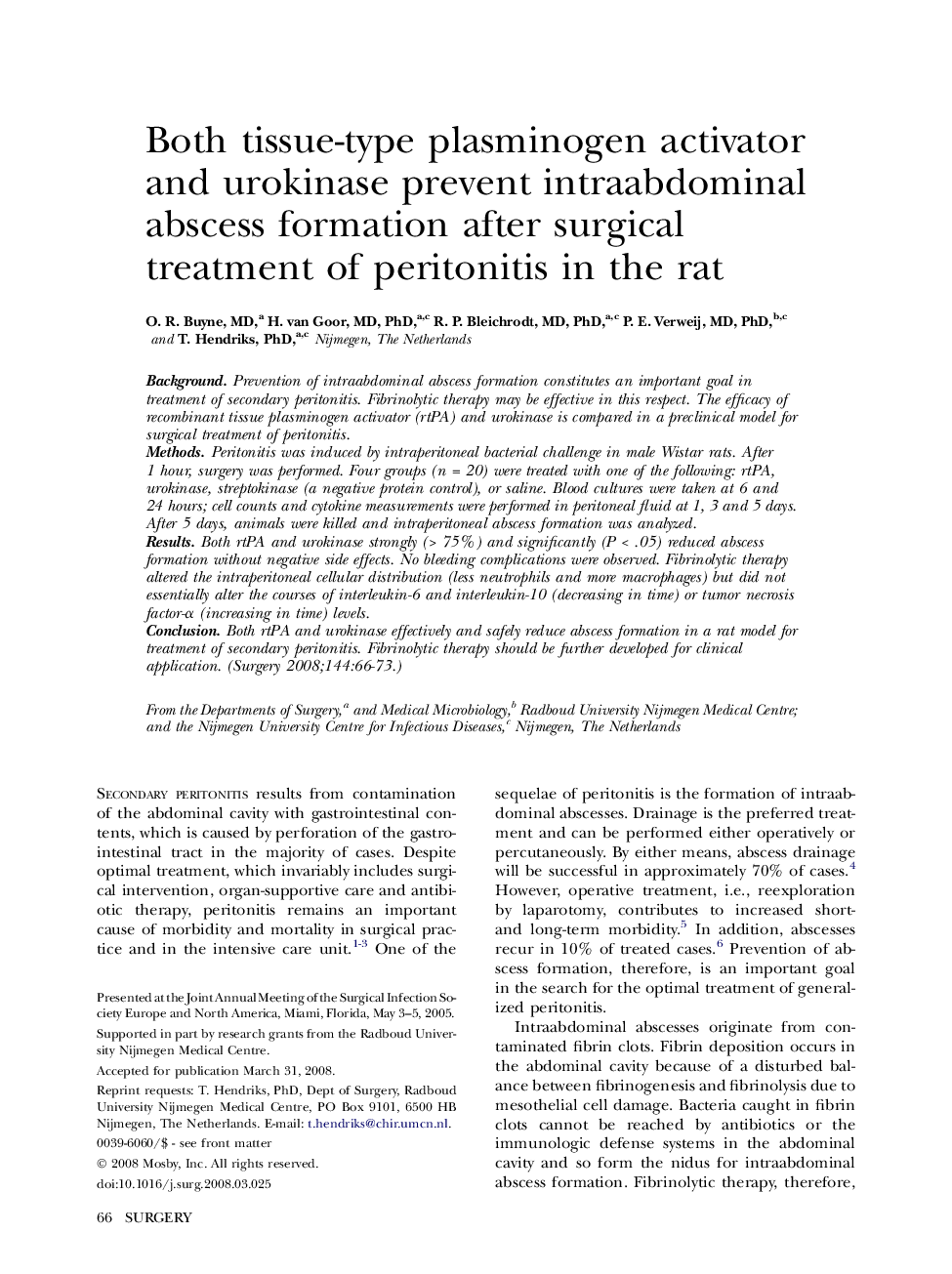| Article ID | Journal | Published Year | Pages | File Type |
|---|---|---|---|---|
| 4309761 | Surgery | 2008 | 8 Pages |
BackgroundPrevention of intraabdominal abscess formation constitutes an important goal in treatment of secondary peritonitis. Fibrinolytic therapy may be effective in this respect. The efficacy of recombinant tissue plasminogen activator (rtPA) and urokinase is compared in a preclinical model for surgical treatment of peritonitis.MethodsPeritonitis was induced by intraperitoneal bacterial challenge in male Wistar rats. After 1 hour, surgery was performed. Four groups (n = 20) were treated with one of the following: rtPA, urokinase, streptokinase (a negative protein control), or saline. Blood cultures were taken at 6 and 24 hours; cell counts and cytokine measurements were performed in peritoneal fluid at 1, 3 and 5 days. After 5 days, animals were killed and intraperitoneal abscess formation was analyzed.ResultsBoth rtPA and urokinase strongly (> 75%) and significantly (P < .05) reduced abscess formation without negative side effects. No bleeding complications were observed. Fibrinolytic therapy altered the intraperitoneal cellular distribution (less neutrophils and more macrophages) but did not essentially alter the courses of interleukin-6 and interleukin-10 (decreasing in time) or tumor necrosis factor-α (increasing in time) levels.ConclusionBoth rtPA and urokinase effectively and safely reduce abscess formation in a rat model for treatment of secondary peritonitis. Fibrinolytic therapy should be further developed for clinical application.
